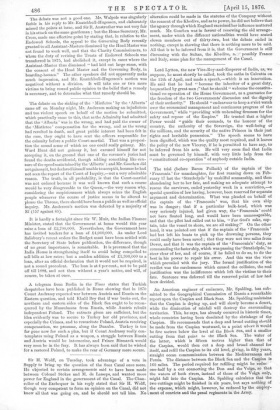Lord Lytton, the new Vice-Roy-and-Emperor of India, as, we suppose,
he must shortly be called, took the oaths in Calcutta on the 12th of April, and made a speech,—which is an innovation. He said that he had " become the inheritor of a great duty, bequeathed by great men ;" that he should " welcome the constitu- tional co-operation of the Home Government, as a guarantee for the freedom of the two Governments' discussion and the dignity of their authority." He should " endeavour to keep a strict watch over the economical management and continuous progress of the Government," while "providing with unbending firmness for the safety and repose of the Empire." He trusted that a higher Power would " guide their counsels, to the honour of the country, the authority of - the Sovereign, the well-being of the millions, and the security of the native Princes in their just rights and heritable possession." The speech seems to have been dignified, which was the quality most required, and it leaves the policy of the new Viceroy, if he is permitted to have any, to be inferred from his acts. He will very soon find that India must be governed by himself, with very little help from the " constitutional co-operation " of anybody outside India.


































 Previous page
Previous page